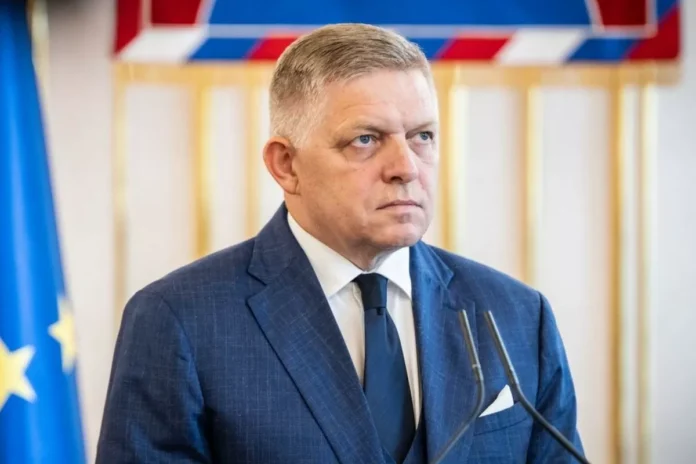Slovak Prime Minister Robert Fico has recently made headlines after announcing his plans to attend the Victory Day parade in Moscow on May 9th. In an interview with Russian propagandist Olga Skabeeva, Fico stated that he would consider it an honor to be present at the event.
The decision to attend the parade has sparked controversy and criticism from some Western leaders, who view it as a show of support for Russian President Vladimir Putin. However, Fico has defended his choice, stating that it is a matter of respect for the sacrifices made by the Soviet Union during World War II.
Fico’s statement has been met with mixed reactions from the Slovakian public. While some view it as a positive step towards strengthening relations with Russia, others see it as a betrayal of Slovakia’s commitment to the European Union and NATO.
In his interview with Skabeeva, Fico emphasized the importance of remembering the sacrifices made by the Soviet Union during the war. He also expressed his admiration for the Russian people and their resilience in the face of adversity.
The Victory Day parade, held annually in Moscow, commemorates the Soviet Union’s victory over Nazi Germany in World War II. This year marks the 75th anniversary of the end of the war, making it a particularly significant event.
Fico’s decision to attend the parade has been met with praise from Russian officials, who see it as a sign of solidarity between the two countries. Russian Foreign Ministry spokeswoman Maria Zakharova stated that Fico’s presence at the parade would be a “symbol of unity and friendship between our peoples.”
However, some Western leaders have criticized Fico’s decision, viewing it as a political move to align with Russia and distance himself from the EU and NATO. The Slovakian government has dismissed these claims, stating that Fico’s attendance is purely to honor the sacrifices made by the Soviet Union.
The controversy surrounding Fico’s decision highlights the ongoing tensions between Russia and the West. However, Fico’s statement serves as a reminder of the importance of remembering and honoring the sacrifices made during World War II, regardless of political affiliations.
Fico’s decision to attend the Victory Day parade also has significant implications for Slovakia’s foreign policy. The country has traditionally maintained a pro-Western stance, but Fico’s actions suggest a potential shift towards closer ties with Russia.
In conclusion, Prime Minister Robert Fico’s announcement of his plans to attend the Victory Day parade in Moscow has sparked both praise and criticism. While some view it as a positive step towards strengthening relations with Russia, others see it as a political move to distance Slovakia from the EU and NATO. Regardless, Fico’s decision serves as a reminder of the importance of honoring the sacrifices made during World War II and the ongoing tensions between Russia and the West.

